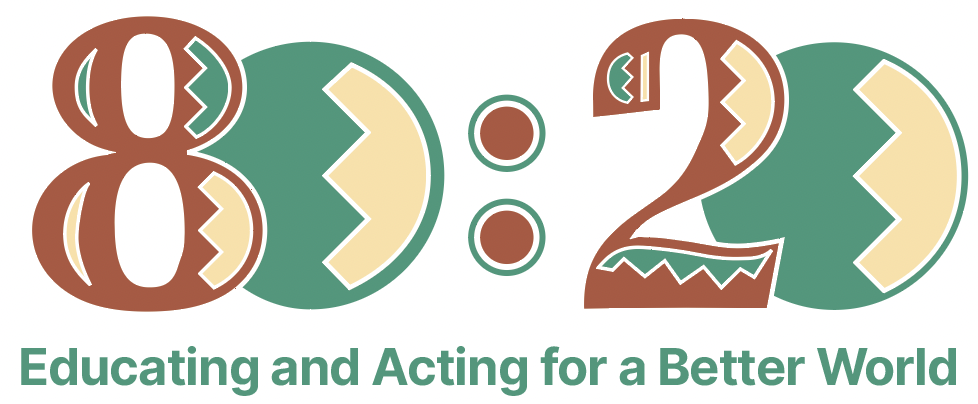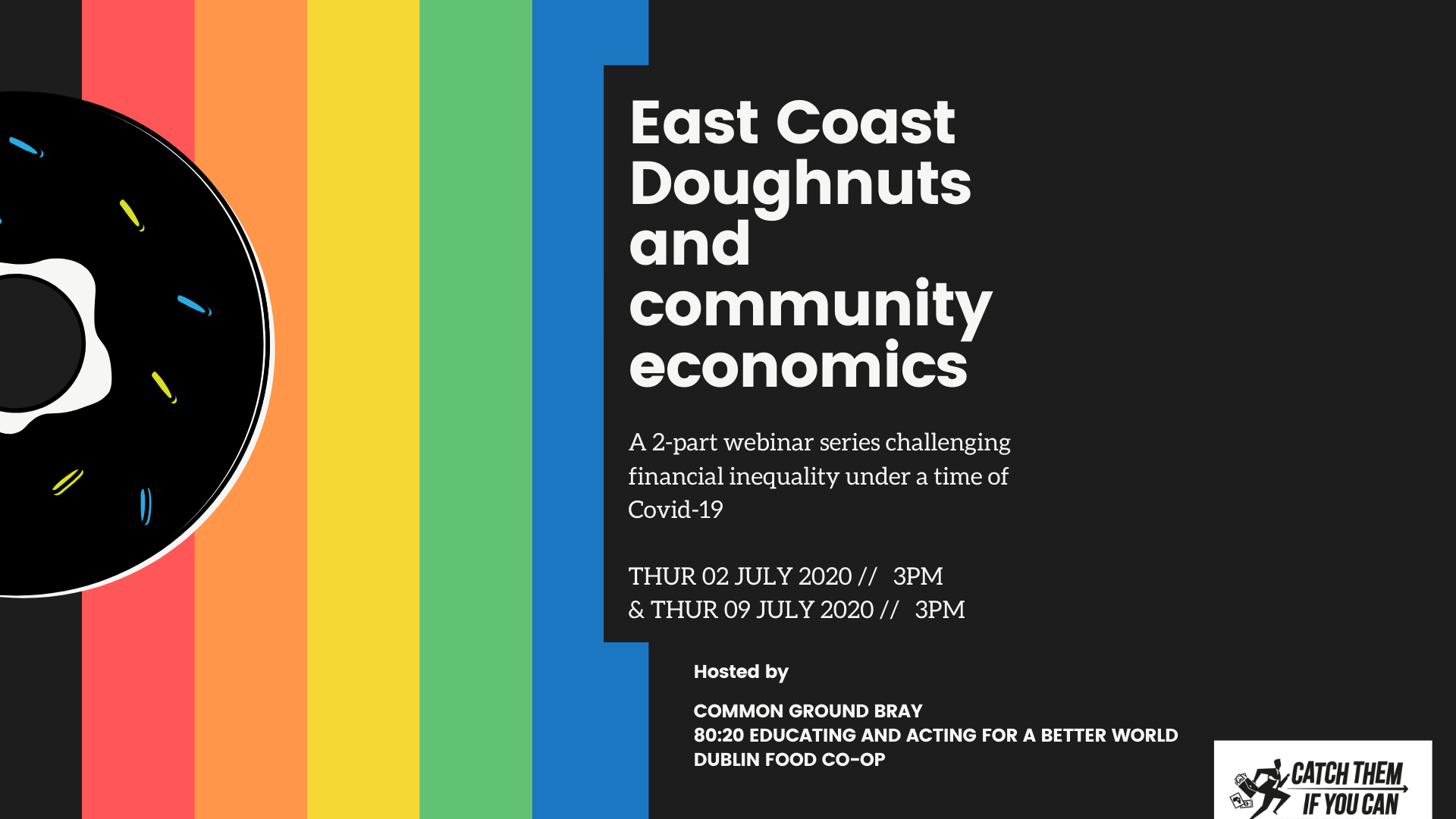Challenging financial inequality under a time of Covid-19
Registration: free via Zoom.
Date: July 9
Time: 3pm (Dublin time)
The first webinar brought NGO 80:20, Educating and Acting for a Better World together with members of Common Ground Bray and Dublin Food Coop to look at the concept of Doughnut Economics as well as how co-operatives tie into this concept.
(If you would like to find out more about Doughnut Economics as an idea, you can check out Kate Raworths website. Kate Raworths is author of ‘Doughnut Economics, 7 ways to think like a 21st century’)
The webinar will be hosted by Tony Daly and Patrick Doyle.
Tony is the co-ordinator of NGO 80:20, a member of Common Ground Bray, hub member of www.developmenteducation.ie and a trustee of Fairtrade Ireland, and Dr Patrick Doyle, historian and author of ‘The Co-op Movement in Ireland; The Co-operative Movement, Development and the Nation-State, 1889-1939’. Patrick is also an active member of the Dublin Food Co-op.
Joining the conversation will be Dr Julian Manley of The University of Lancashire. Dr Manley current research focuses on the social value aspect of working and living co-cooperatively and the Preston Model. (Learn more about the Preston model).
This webinar is an open discussion and everyone is welcome to join, participate or just listen. This week the webinar will be looking at how to implement steps towards an economy based on the principles of Doughnut Economics and how these principles can work within the context of Cooperatives.
While endless growth policies are temporarily on a hiatus for many, what does expanding a circular economy from the East Coast of Ireland look like in the context of a global pandemic? How do we reverse inequalities across communities, and what can we do?
This is an open discussion, all input and ideas welcome! How can we, as a society create a more inclusive, community based and just way to do business?’

